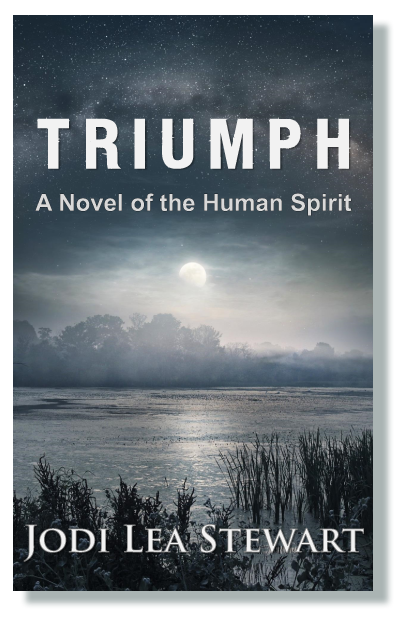
|
| No running water, no inside plumbing, no way to run to the store for bread, meat, or butter. The name of the game was survival. |
In our current world, it’s hard to conceive of what it’s like to feed a lot of mouths when you have empty pockets and no promise of help. In 1934, welfare was non-existent, but my long-ago farmer relatives would have died before taking government handouts anyway. Without education, opportunity, and with no way to move up a corporate ladder or go to college to better one’s self, life was lived by prayer, hope, and the sweat of the brow.
Food meant the difference between living or dying for the farmers and sharecroppers of 1930s Oklahoma. I highlight that struggle and life lived close to the earth in my latest novel, Blackberry Road.
No Crops ~ No Life
Coaxing the stubborn ground to give up its stumps and boulders by utilizing a small team of horses, mules, or even one of each was the only way to prepare the dirt for growing crops. After that back-breaking task came the planting, weeding, and harvesting of the fields and gardens. Is it any wonder those men and women became experts at preserving and stretching their bounty?
 My grandmother was one of those women. The wife of a sharecropper, she gave birth to eleven children, all at home and all delivered by her own husband. Coming from a family of eleven children herself, she was equipped with the knowledge of keeping a horde of hungry kids alive and fed.
My grandmother was one of those women. The wife of a sharecropper, she gave birth to eleven children, all at home and all delivered by her own husband. Coming from a family of eleven children herself, she was equipped with the knowledge of keeping a horde of hungry kids alive and fed.
If it grew in the dirt or came off a tree, she knew how to preserve it in a jar.
She cooked on an old wood stove, and mealtime was greatly anticipated three times a day. Everyone gathered at the table with a sense of excitement. Family courtesy dictated each person look around and calculate how many mouths were to be fed at the table. The answer determined the serving size each one could take on his/her plate.
Dividing a bowl of milk gravy or fried “taters” by thirteen, or adding up the buttermilk biscuits in the crockery bowl to see how many each could have, made those kids early mathematicians!
No Animals ~ No Life
The family kept cows for fresh milk and made butter from the cream. Buttermilk was considered a special treat, as well as cottage cheese made by letting milk clabber, hanging it on a clothesline in a bag, and then letting it drip dry until it curdled.
Chickens provided eggs and protein. My granddad raised hogs and butchered them when the weather turned cold. This provided bacon, sausage, headcheese, the boiled backbone for seasoning potatoes, beans, and more. Nothing was wasted. Granddad made real pork skins (cracklings)—not the kind you buy today—from the hides.
My seven uncles added to the survival table by killing rabbits and squirrels with slingshots. Like it or not by our delicate standards of today, that was another way to keep empty bellies from hurting.
Because Granddad grew up in Indian Territory, Oklahoma, he knew about boiling sassafras root in the spring to make a tea that boosted one’s health. He knew the herbs, roots, and weeds that were fine to eat, which ones to use in herbal medicines, and which ones to avoid at all costs.
As the issues are hotly argued in the twenty-first century about genetically engineered foods, depleted soils, chemical preservatives, and mass production of food commodities that barely resemble the original foods of yesterday, the simplicity of those earlier times often pulls at our hearts—a time when soil was rich and yielded the best food for our lives.
Survival Recipes
Fried Okra
Pick a good mess of fresh okra
Wash and rinse
Cut into ¼” slices
Roll in cornmeal, salt, and pepper
Fry in bacon grease until slightly crispy
Pinto Beans and Salt Pork
Dried pinto beans
Large onion, thick sliced or chopped
A two-inch piece of salt pork, cubed
1 Tbls. chili powder
2 cloves garlic, mashed
Salt and ground pepper to taste
Go through beans and pick out rocks and sticks. Rinse and drain. Dump beans in a heavy pan and add water to cover plus 5-6 more inches. Add cubed salt pork, onion, chili powder, garlic, salt, and pepper. Bring water to a boil. Cover pan, but not tight. Stir and add more seasonings as beans cook.
Hot Bean Dumplings
Left-over cooked pinto beans made juicier by adding more water
Red or green peppers to make beans hot, optional
Biscuit dough rolled out thin and cut into one-half-inch by three-inch strips (dumplings)
Bring beans and juice to a rolling boil. Drop biscuit dumplings into pot and heat through. It doesn’t take long. Serve immediately.
Johnny Cakes
2 cups cornmeal
¼ cup flour
½ tsp. baking powder
1 tsp. salt
1 Tbls. sugar or honey
1-1/2 to 2 cups boiling water
2 Tbls. bacon drippings
Measure and sift dry ingredients in a bowl. Heat water to boiling. Pour water and bacon drippings over dry ingredients. Drop by tablespoons into deep fat and fry. If you prefer to bake the Johnny cakes, shape in your greased palm and place on a greased baking sheet. Bake 30 min. at 450°.
For a page-turning mystery, as well as more downright authentic survival food recipes, pick up your copy of Blackberry Road.

Jodi Lea Stewart is the author of a contemporary trilogy set in the Navajo Nation and two historical adventure-mysteries. More are on the way!
Trouble sneaks in one Oklahoma afternoon in 1934 like an oily twister. A beloved neighbor is murdered, and a single piece of evidence sends the sheriff to arrest a black man Biddy, a sharecropper’s daughter, knows is innocent. Hauntingly terrifying sounds seeping from the woods lead Biddy into even deeper mysteries and despair and finally into the shocking truths of that fateful summer.
“Beyond the humor and entertaining antics of the main character, Biddy Woodson, BLACKBERRY ROAD has depth and meaning as it explores stirring universal themes that we expect in great literature” ~ D.B. Jackson, acclaimed Historical and Western author
BLACKBERRY ROAD is engaging, entertaining, and a book that is sure to linger with you . . . the trip is well worth the time ~ Cyrus Webb, Host of ConversationsLIVE, president of Conversations Radio Network, tv show host, author, and publicist
AN ADVENTURE-MYSTERY TRILOGY YOU DON’T WANT TO MISS! SILKI, THE GIRL OF MANY SCARVES trilogy has no age limits.

COMING IN SEPTEMBER:
THE ACCIDENTAL ROAD
A teen and her mother escaping an abusive husband tumble into the epicenter of crime peddlers invading Arizona and Nevada in the 1950s. Stranded hundreds of miles from their planned destination of Las Vegas, they land in a dusty town full of ghosts and tales, treachery and corruption. Avoiding disaster is tricky, especially as it leads Kat into a fevered quest for things as simple as home and trust. Danger lurks everywhere, leading her to wonder if she and her mother really did take The Accidental Road of life, or if it’s the exact right road to all they ever hoped for.
Jodi Lea Stewart was born in Texas to an “Okie” mom and a Texan dad. Her younger years were spent in Texas and Oklahoma; hence, she knows all  about biscuits and gravy, blackberry picking, chiggers, and snipe hunting. At the age of eight, she moved to a large cattle ranch in the White Mountains of Arizona. Later, she left her studies at the University of Arizona in Tucson to move to San Francisco, where she learned about peace, love, and exactly what she DIDN’T want to do with her life. Since then, Jodi graduated summa cum laude with a BS in Business Management, raised three children, worked as an electro-mechanical drafter, penned humor columns for a college periodical, wrote regional Western articles, and served as managing editor of a Fortune 500 corporate newsletter. She currently resides in Arizona with her husband, her delightful 90+year-old mother, a crazy Standard poodle named Jazz, a rescue cat, and numerous gigantic, bossy houseplants.
about biscuits and gravy, blackberry picking, chiggers, and snipe hunting. At the age of eight, she moved to a large cattle ranch in the White Mountains of Arizona. Later, she left her studies at the University of Arizona in Tucson to move to San Francisco, where she learned about peace, love, and exactly what she DIDN’T want to do with her life. Since then, Jodi graduated summa cum laude with a BS in Business Management, raised three children, worked as an electro-mechanical drafter, penned humor columns for a college periodical, wrote regional Western articles, and served as managing editor of a Fortune 500 corporate newsletter. She currently resides in Arizona with her husband, her delightful 90+year-old mother, a crazy Standard poodle named Jazz, a rescue cat, and numerous gigantic, bossy houseplants.
Just for fun . . .















